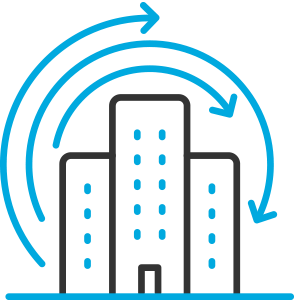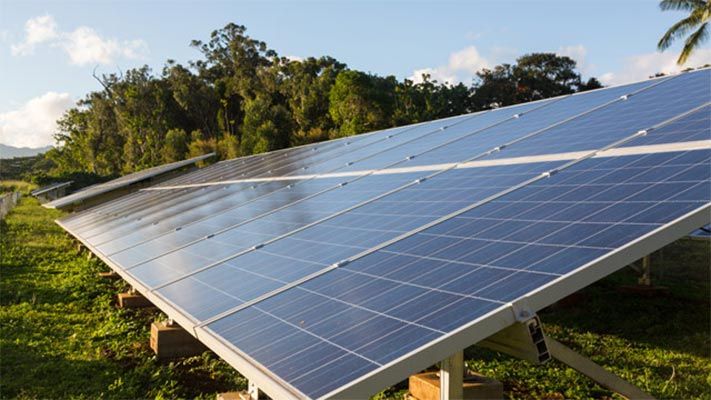A sustainable future requires action to address the effects of climate change. That’s why MathWorks is committed to decarbonizing our operations.
We will achieve this by setting aggressive goals in three areas.

Continuously improving efficiency

Supporting renewable energy

Supporting carbon removal projects
Highlights
MathWorks has made significant progress toward reducing our carbon footprint. Following are some activities that support this effort.
Support for Carbon Removal Projects
MathWorks purchases carbon credits from the Arbor Day Foundation, in support of the GreenTrees ACRE (Advanced Carbon Restored Ecosystem) project located in the Mississippi Alluvial Valley, to offset our Scope 1 and a portion of our Scope 3 greenhouse gas emissions. We plan to partner with the Arbor Day Foundation to sponsor additional reforestation activities.
Renewable Energy
MathWorks constructed the first solar array at the Apple Hill campus in 2008; seven arrays now generate nearly 2,000 MWh annually. MathWorks is actively working to enter into a virtual power purchase agreement (VPPA) that will cover all US-based Scope 2 emissions. Until that agreement is in place, MathWorks is offsetting Scope 2 emissions by purchasing renewable energy credits (RECs) from projects in areas where we believe these purchases can have the most impact.
Efficient Buildings
Over 65% of MathWorks square footage is in the Natick campuses. In Natick and where possible in other locations, MathWorks has invested heavily in energy-efficient building components and systems, including:
- High-performance building materials
- Automation for building HVAC and lighting systems
- Fault detection and diagnostics software, based on MATLAB®, that continuously analyzes thousands of building data points to optimize efficiency
- Low-flow fixtures, rainwater capture for irrigation, and other water reduction measures
EV Charging
On the Natick campuses, MathWorks has equipped 114 parking spaces with access to free EV chargers. Chargers can fully charge a typical electric vehicle in four hours. MathWorks also offsets all of the greenhouse gas emissions associated with these chargers.
Recycling and Waste
MathWorks Natick campuses recycle 40% of all waste. All non-recycled waste is sent to a waste-to-energy facility, where it helps fuel energy production.
Bike Share
Complimentary bikes are available for carbon-free travel between MathWorks Natick campuses, along a local bike trail.

MathWorks has long pursued sustainability projects as part of its mission, and I am passionate about decarbonizing MathWorks.
— Jack Little, CEO
